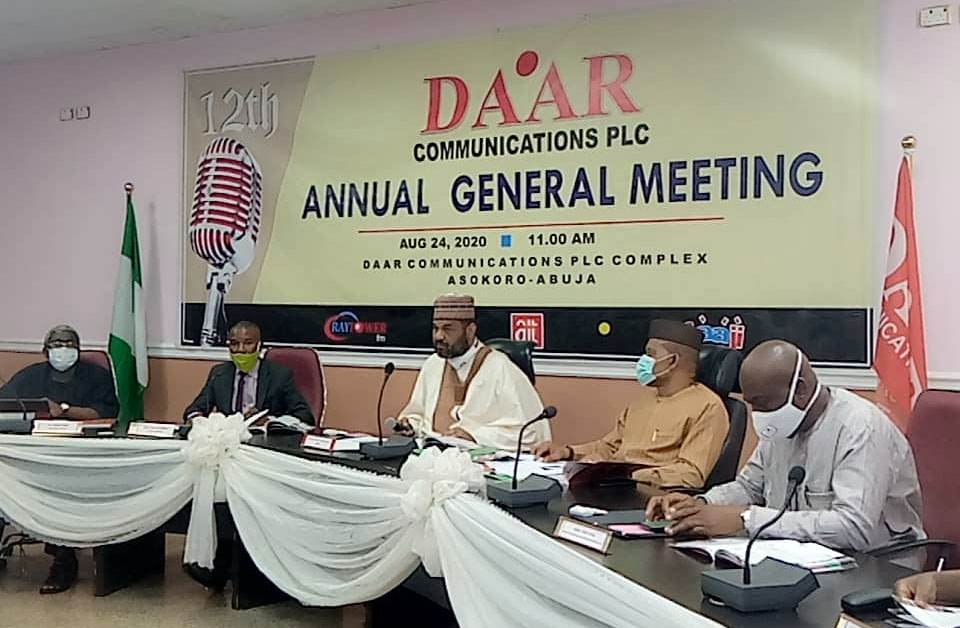Business
Number of metered electricity consumers rises by 48.5% – NBS report

Number of metered electricity consumers rises by 48.5% – NBS report
The number of metered electricity consumers in Nigeria grew by 48.5% between 2019 and the first quarter of 2024, according to data from the National Bureau of Statistics (NBS).
The analysis revealed that in 2019, metered consumers nationwide totaled 3,976,940. This figure rose steadily to 5,907,644 by Q1 2024, highlighting significant progress in metering over the five-year period.
The NBS data shows incremental growth, with metered users increasing to 4,138,043 in 2020, 4,773,217 in 2021, 5,125,009 in 2022, 5,605,842 in 2023, and finally 5,907,644 in early 2024. This represents annual growth rates of 4.1%, 15.4%, 7.4%, 9.4%, and 5.3%, respectively.
Experts see this growth as a positive sign for the electricity sector, reflecting a decline in the number of consumers subject to estimated billing, a practice that has long been criticized for its lack of transparency and fairness.
However, the NBS also reported an 11.6% rise in the number of consumers on estimated billing during the review period. The number of customers billed on estimates increased from 5,758,026 in 2019 to 6,426,355 in the first quarter of 2024, despite fluctuations, including a peak of 6,227,870 in 2020 and a dip to 5,741,365 in 2021.
READ ALSO:
- Wike vows not to leave PDP for Damagum, vampires
- Osun motorcyclist held for ‘robbing’, ‘raping’ passenger
- Ukraine targets Moscow in ‘one of largest ever’ drone attacks
The persistence of estimated billing continues to raise concerns about billing accuracy, highlighting the need for further expansion of metered connections.
The data also showed disparities among electricity distribution companies (DisCos). Ibadan Electricity Distribution Company recorded the highest number of customers on estimated billing at 1,411,102, while Eko Electricity Distribution Company had the lowest at 255,271.
Other DisCos reported significant numbers of unmetered customers, including Abuja (564,727), Benin (688,081), Enugu (765,662), Ikeja (219,632), Jos (495,449), Kaduna (639,395), Kano (465,048), Port Harcourt (231,384), and Yola (690,604).
Earlier this year, the Minister of Power, Adebayo Adelabu, pledged to significantly address the issue of estimated billing by the end of 2024. During a visit to power facilities in Ibadan, he stressed the importance of collaboration with stakeholders to tackle challenges in the sector, especially the metering gap, which currently leaves around 50% of consumers unmetered.
“Citizens are tired of estimated billing because it often leads to cheating between consumers, staff, and the company,” Adelabu said. “Before the end of this year, we aim to eliminate estimated billing, ensuring transparency and objectivity in our billing system.”
Number of metered electricity consumers rises by 48.5% – NBS report
Business
Nigerian Equities Post World’s Second-Best Dollar Returns in 2026, Recover $21bn

Nigerian Equities Post World’s Second-Best Dollar Returns in 2026, Recover $21bn
Nigerian equities have emerged as one of the best-performing stock markets globally in 2026, delivering the world’s second-best dollar returns after years of currency-driven losses and weak investor sentiment. The local market has risen 31 percent in dollar terms this year, helping investors recoup about $21 billion in market value lost following the sharp naira devaluation in 2024.
Market capitalisation on the Nigerian Exchange Group has climbed to approximately $84 billion, representing a 58 percent increase from levels recorded before the currency collapse. According to Bloomberg, Nigeria’s benchmark equity index has surged 31 percent year-to-date, significantly outperforming global peers. The rally far outpaces the 11 percent gain in the broader emerging-market index and the 6.4 percent advance recorded by frontier-market stocks.
Analysts attribute the sharp rebound to a combination of stronger corporate earnings, exchange-rate stability, and renewed investor confidence following wide-ranging economic reforms. Olabode Williams, an analyst at SBG Securities Ltd, said companies hardest hit by the naira’s earlier collapse have now stabilised their balance sheets and returned to profitability. He noted that investors are increasingly pricing in growth as corporate fundamentals improve, adding that Nigerian equities are becoming more attractive to both local and foreign investors after years of underperformance.
READ ALSO:
- Ramadan Begins in Nigeria as Sultan Confirms Crescent Sighting
- Deadlock at National Assembly as House Snubs Electoral Act Bill Meeting on E-Transmission Clause
- Maikori Accuses Ex‑Governor El‑Rufai of Persecution Over 2017 Tweet
The rally has also been supported by a firmer naira, which has appreciated by more than seven percent against the dollar in 2026, ranking as the world’s second-best performing currency among those tracked by Bloomberg. The currency rebound has strengthened dollar-based equity returns and helped reverse losses triggered by earlier exchange-rate volatility.
Foreign participation has increased sharply alongside the rally. Data from the Nigerian Exchange Group shows that non-Nigerian trading in local equities reached a 19-year high in 2025. Transactions by foreign investors tripled to ₦2.65 trillion ($1.97 billion) from ₦852 billion in the previous year, reflecting renewed global appetite for Nigerian risk assets.
Market analysts believe the rally could extend further if major listings materialise. Gloria Fadipe, an analyst at CSL Stockbrokers Ltd, a unit of FCMB Group Plc, said the market could exceed $100 billion in valuation this year if large-scale listings proceed. She noted that potential listings of Dangote Refinery and Dangote Fertiliser could deliver capital gains of up to 34 percent while deepening market liquidity.
The rebound comes amid broader macroeconomic reforms introduced by Bola Tinubu, including the unification and liberalisation of the foreign-exchange market. While the reforms initially triggered volatility and inflationary pressure, economists say they are restoring policy credibility, improving capital inflows, and repositioning Nigerian assets for sustained long-term growth.
Nigerian Equities Post World’s Second-Best Dollar Returns in 2026, Recover $21bn
Business
Naira Maintains Stability Against Dollar as CBN FX Measures Keep Markets Calm

Naira Maintains Stability Against Dollar as CBN FX Measures Keep Markets Calm
The Nigerian Naira showed relative stability against the United States Dollar during Tuesday, February 17, 2026, trading sessions in both official and parallel foreign exchange markets. After a weekend of consolidation, the local currency continued to hover around the ₦1,350 band, reflecting the effectiveness of the Central Bank of Nigeria’s (CBN) liquidity management policies.
In the official Nigerian Foreign Exchange Market (NFEM), the Naira opened at ₦1,351.18 per dollar and adjusted slightly by mid-morning to ₦1,354.86, a movement attributed to early-week corporate demand. Analysts say the Electronic Foreign Exchange Matching System (EFEMS) and the Monetary Policy Rate (MPR) have helped anchor the official exchange rate below the ₦1,400 mark for over two weeks, providing a predictable environment for businesses and investors.
READ ALSO:
- 28 Wedding Guests Die in Separate Road, Boat Accidents in Enugu, Kebbi
- FG, Progressive Governors Forum Pledge ₦8bn Relief for Singer Market Fire Victims
- Former INEC REC Warns of “Chaos” in 2027 Over E-Transmission of Election Results
Meanwhile, in the parallel market, the Naira traded at a traditional premium, ranging from ₦1,380 to ₦1,440 per dollar in commercial hubs like Lagos, Abuja, and Kano. Traders reported sufficient dollar supply for personal travel and small-scale business transactions, noting that the narrowing gap between official and parallel rates has discouraged speculative hoarding and improved market efficiency.
Recent CBN interventions, including expanding access to licensed Bureau De Change operators and enforcing regulatory compliance, have strengthened FX liquidity, allowing for more transparent price discovery. Combined with Nigeria’s moderating inflation rates and robust external reserves of around $49 billion, these measures have bolstered confidence in the Naira and helped limit excessive volatility.
Market watchers, however, caution that challenges remain, including uneven foreign exchange inflows and persistent demand pressures in the informal sector. Sustaining the Naira’s stability in the coming weeks will depend on continued policy consistency, enhanced liquidity provision, and investor participation across sectors.
Summary of Rates on February 17, 2026:
- Official NFEM Opening: ₦1,351.18 per $1
- Official NFEM Mid-Morning: ₦1,354.86 per $1
- Parallel Market Range: ₦1,380 – ₦1,440 per $1
Analysts remain cautiously optimistic that the Naira can maintain its stability and momentum for the remainder of February, provided that external reserves and FX supply measures continue to support the market.
Naira Maintains Stability Against Dollar as CBN FX Measures Keep Markets Calm
Business
Dokpesi Jr, Ex-GMD Akiotu Clash Over DAAR Communications Mgt Restructuring

Dokpesi Jr, Ex-GMD Akiotu Clash Over DAAR Communications Mgt Restructuring
A public dispute has erupted at DAAR Communications Plc as Chairman Raymond Dokpesi Jr and former Group Managing Director, High Chief Tony Akiotu, publicly clashed over the company’s recent management restructuring, raising questions about corporate governance and the legacy of Nigeria’s pioneering media organisation.
Speaking in Abuja, Dokpesi Jr defended the executive shake-up, stating he has “no regrets” about the decisions made following the sudden death of the company’s founder, Raymond Aleogho Dokpesi Sr. He described the departure of long-serving executives as a difficult but necessary step to ensure stability, investor confidence, and future growth. The chairman noted that the company faced challenges after his father’s passing, including declining share value and reduced investor confidence, and emphasised that the transition process was carefully managed to minimise tension.
READ ALSO:
- EFCC Holds El-Rufai Overnight Over ₦423bn Kaduna Corruption Allegations
- Troops Intercept ₦37m Terror Funds, Phones, ISWAP Logistics in Borno Operations
- X Restored After Global Outage Disrupts Millions Worldwide
Dokpesi Jr acknowledged that the exiting executives were owed salary arrears and other entitlements, which the organisation has been settling, amounting to billions of naira accumulated over their 15-year tenure. He explained that the restructuring allowed the company to prioritise outstanding obligations and improve operational efficiency, with most business units now financially independent and others expected to achieve autonomy before the end of the year. “I will continue to apologise to Mr Tony Akiotu and the affected management staff for any hurt feelings,” he said, “but I have no regrets — the results validate the decision.”
In response, Akiotu criticised Dokpesi Jr’s statement as unfair and misleading. He argued that it was inappropriate for a chairman who presided over board meetings and approved management memos to later accuse the same leadership team of mismanagement. Akiotu highlighted that all major operational and financial decisions during his tenure were subject to board approval, and that the team had contributed significantly to the company’s growth into a national and international media brand, with operations spanning Nigeria, the United Kingdom, and the United States.
Akiotu also noted that while executive retirements may be permissible under corporate regulations, the public portrayal of their tenure overlooked the sacrifices made to build one of Nigeria’s pioneering broadcast institutions. “If Raymond Dokpesi Jr believes we played no part in the growth of the company, we leave it to Nigerians and history to make that judgment,” he said.
Industry observers say the dispute underscores ongoing debates about corporate governance, leadership succession, and strategic reform within DAAR Communications, which continues to be a major player in Nigeria’s broadcast media sector. Both parties have called for dialogue, but the public nature of the clash has drawn attention across the media and business community, with speculation over potential boardroom changes and the company’s future direction.
Dokpesi Jr, Ex-GMD Akiotu Clash Over DAAR Communications Mgt Restructuring
-

 News2 days ago
News2 days agoSaudi Arabia Confirms Sighting of Ramadan Crescent, Fasting Begins Wednesday
-

 metro2 days ago
metro2 days agoLagos Woman Shares Ordeal After Alleged Rape, Sparks Nationwide Outcry
-

 News2 days ago
News2 days agoRamadan Begins in Nigeria as Sultan Confirms Crescent Sighting
-

 metro2 days ago
metro2 days agoSeven Killed in Horrific Crash at Ota Toll Gate
-

 metro2 days ago
metro2 days agoDeadlock at National Assembly as House Snubs Electoral Act Bill Meeting on E-Transmission Clause
-

 News20 hours ago
News20 hours agoKorope Drivers Shut Down Lekki–Epe Expressway Over Lagos Ban (Video)
-

 metro2 days ago
metro2 days agoTroops Intercept ₦37m Terror Funds, Phones, ISWAP Logistics in Borno Operations
-

 Health1 day ago
Health1 day agoRamadan Health Tips: Six Ways to Stay Hydrated While Fasting



